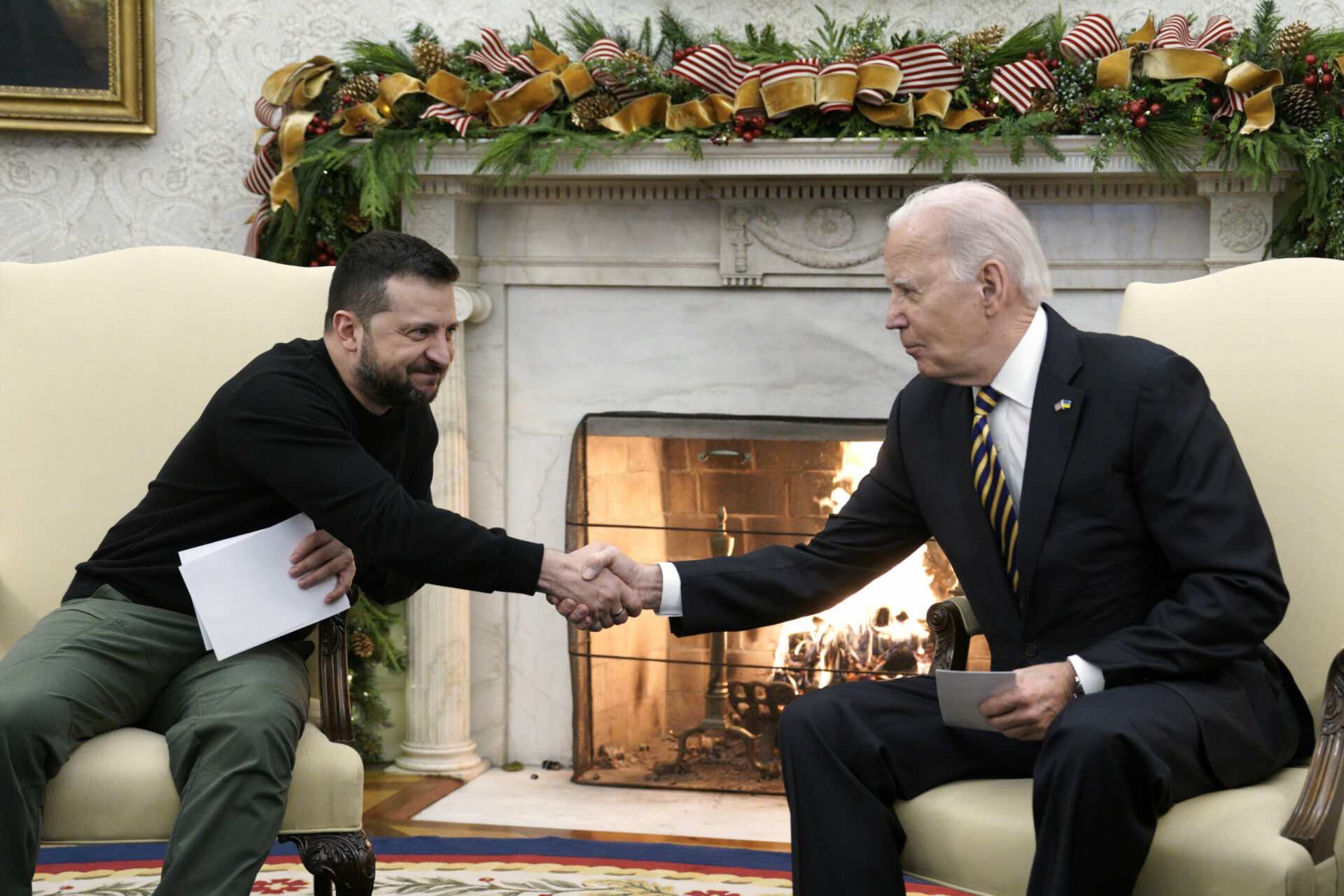
This article was originally published by Radio Free Europe/Radio Liberty and is reprinted with permission.
The European Parliament has approved a loan of up to 35 billion euros ($38 billion) for Ukraine’s defense and reconstruction that will be repaid using future revenues from Russian central bank assets frozen abroad.
The loan accounts for the EU’s share of a larger plan devised by the Group of Seven (G7) leading industrialized countries to lend Ukraine $50 billion.
It comes as Kyiv’s forces face a fierce Russian offensive in the east and frequent deadly strikes on cities and energy infrastructure, which claimed seven lives, including three children, on October 22.
The plan, officially known as the G7’s Extraordinary Revenue Acceleration (ERA) Loans to Ukraine, was announced by the Group of Seven in June.
EU lawmakers on October 22 voted 518-56 with 61 abstentions in favor after the bloc’s governments approved the measure earlier this month. Most of the blocked Russian assets are located in the EU.
The loan is to be serviced by revenues generated by Russian sovereign assets frozen in the West after the start of Moscow’s unprovoked invasion of Ukraine in February 2022.
Russia has protested the use of its frozen assets, estimated at some $300 billion, calling it illegal and threatening retaliation.
As part of the same plan, Britain announced earlier on October 22 that it will provide Ukraine with a £2.26 billion ($2.4 billion) loan to acquire more weapons systems.
U.K. Defense Secretary John Healey and Chancellor of the Exchequer Rachel Reeves announced the loan while visiting Ukrainian troops training in Britain, the London government said in a statement.
The loan is “earmarked as budgetary support for Ukraine’s military spending, enabling the Ukrainians to invest in key equipment to support their efforts against Russia, such as air defense, artillery, and wider equipment support,” the statement said.
“Our support for Ukraine and her men and women in their fight for freedom from [Russian President Vladimir] Putin’s aggression is unwavering and will remain so for as long as it takes,” it said.
The loan is in addition to Britain’s existing $3.9 billion annual military-aid program for Ukraine and comes on top of the $16 billion already committed by London in military, economic, and humanitarian support for Kyiv.
Meanwhile, three people, including a young girl, were killed in the northeastern Sumy region, which borders Russia, the region’s administration said, while in the eastern Donetsk region two children and a 64-year-old woman died in Russian strikes over the past 24 hours, according to local officials.
A 13-year-old girl died in Odesa during a school evacuation prompted by an air-raid alarm, police said.
The Ukrainian Air Force said it shot down 42 of the 60 drones launched by Russia at eight regions — Sumy, Dnipropetrovsk, Cherkasy, Donetsk, Zaporizhzhya, Kyiv, Kherson, and Kharkiv.
In Russia, authorities in two regions reported that Ukrainian drones targeted three alcohol distilleries.
In the Tambov region, southeast of Moscow, a drone strike sparked a fire at the Biokhim ethanol distillery, regional Governor Maksim Yegorov said on Telegram. Biokhim is one of Russia’s oldest manufacturers of “products of strategic importance for the state,” mainly ethanol, the company says on its website.
In the Tula region, south of Moscow, Ukrainian drones struck alcohol distilleries, one in Efremov, and one in Luzhkovsky, regional Governor Dmitry Milyaev said, adding that there were no casualties.
Russia’s Defense Ministry said its air defense systems shot down 18 Ukrainian drones overnight.
Ukraine, whose civilian and energy infrastructure has been pummeled relentlessly by Russian attacks, has in recent months been increasingly targeting Russian oil and fuel depots and other facilities working for the military.